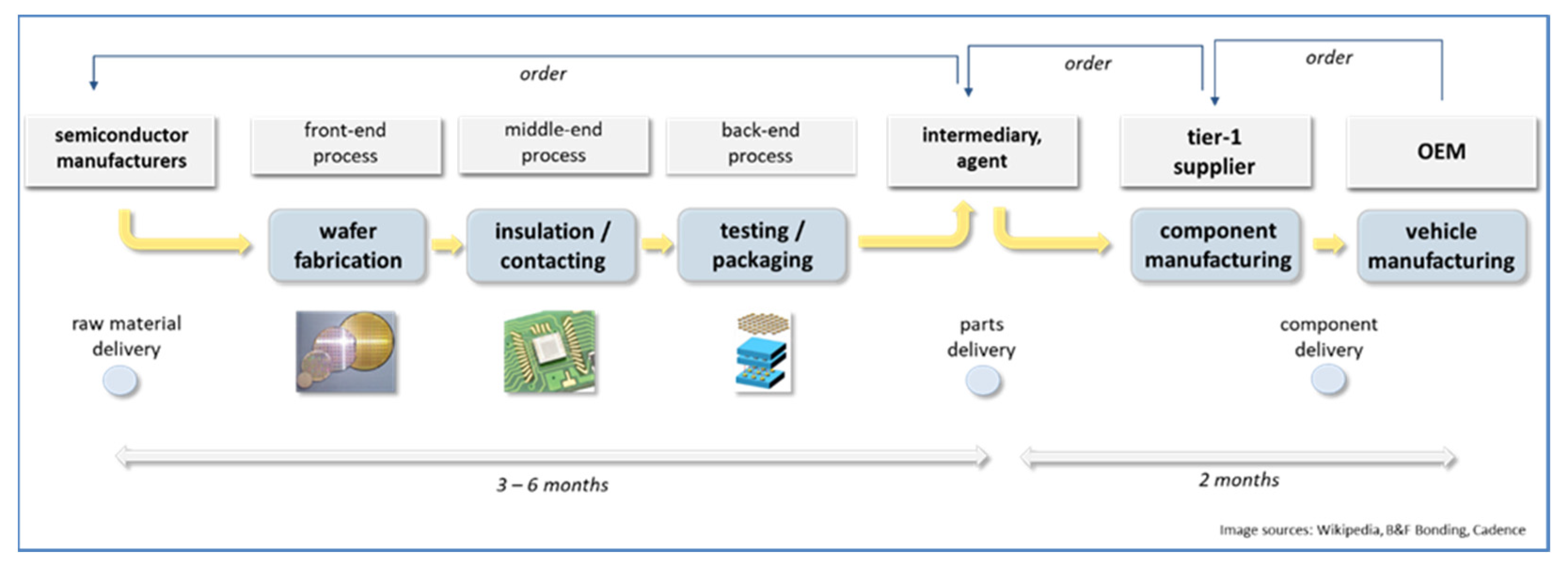World Electric Vehicle Journal : The “Semiconductor Crisis” as a Result of the COVID-19 Pandemic and Impacts on the Automotive Industry and Its Supply Chains
Authors: Benjamin Frieske and Sylvia Stieler

In the first half of 2020, the coronavirus pandemic led to a drastic slump in the automotive industry, which was replaced by a surprisingly rapid growth in demand in the fall of 2020, and consequently led to the current shortages in microelectronic products. The prospect of an equally rapid economic recovery in the automotive industry is still threatened by supply bottlenecks for raw materials and key components, foremost for semiconductors. The so-called ‘semiconductor crises’ show exemplarily the overlapping of short-term supply chain disruptions with long-term structural features of the semiconductor industry. The combination of both is preventing that the supply situation in the automotive industry will improve quickly. First in this paper, the reasons for and respective effects of the crisis on the automotive industry are investigated by a quantitative market analysis. Second, specific strategic measures and options of automotive Original Equipment Manufacturers (OEM) and suppliers in Germany to cope with the situation and increase resilience in future supply chains are described by the means of qualitative expert interviews. By that, the paper helps in understanding the actual situation in the automotive industry, on the one hand, and contributes to the field of strategic supply chain and risk management with a focus on practical implications on the other hand. The results aim to support political stakeholders as well as small and medium sized enterprises to prepare themselves for future developments in the automotive market and changes in manufacturer–supplier relationships due to the transformation to new powertrain technologies and digitization.
In the same category
- “Driving Collaboration in Europe's Thriving EV Sector: opportunities for emissions reductions”
- Autel Energy bringing innovative new EV chargers across Europe
- Baden-Württemberg on its way to becoming the top location for e-mobility
- ECO/G
- Empowering the Transition to Electric Mobility: Equans' Smart Charging Solutions
- Hyundai
- Leapmotor
- Sungrow EV Charging Introduced Low and Fast EV Charging solutions
- Total Energies
- Why Submit to World Electric Vehicle Journal?
- World Electric Vehicle Journal : Analysis of Energy Flow in a Mid-Sized Electric Passenger Vehicle in Urban Driving Conditions
- World Electric Vehicle Journal : Battery Health Monitoring and Degradation Prognosis in Fleet Management Systems
- World Electric Vehicle Journal : Evaluation of a Back-up Range Extender and Other Heavy-Duty BEV-Supporting Systems
- World Electric Vehicle Journal : Implementation Schemes for Electric Bus Fleets at Depots with Optimized Energy Procurements in Virtual Power Plant Operations
- World Electric Vehicle Journal : Investigation and Development of Textile Lightweight Bodies for Urban Logistic Vehicles
- World Electric Vehicle Journal : Leveraging Connected Vehicle Data to Assess Interstate Exit Utilization and Identify Charging Infrastructure Investment Allocation Opportunities
- World Electric Vehicle Journal : Performance Comparison of Si IGBT and SiC MOSFET Power Module Driving IPMSM or IM under WLTC
- World Electric Vehicle Journal : Perspectives on Modeling Energy and Mobility Transitions for Stakeholders: A Dutch Case
- World Electric Vehicle Journal : Proposing a Hybrid Thermal Management System Based on Phase Change Material/Metal Foam for Lithium-Ion Batteries
- World Electric Vehicle Journal : Second-Life Batteries Modeling for Performance Tracking in a Mobile Charging Station
- World Electric Vehicle Journal : The “Semiconductor Crisis” as a Result of the COVID-19 Pandemic and Impacts on the Automotive Industry and Its Supply Chains
- World Electric Vehicle Journal : Thermal Analysis of Coupled Resonant Coils for an Electric Vehicle Wireless Charging System